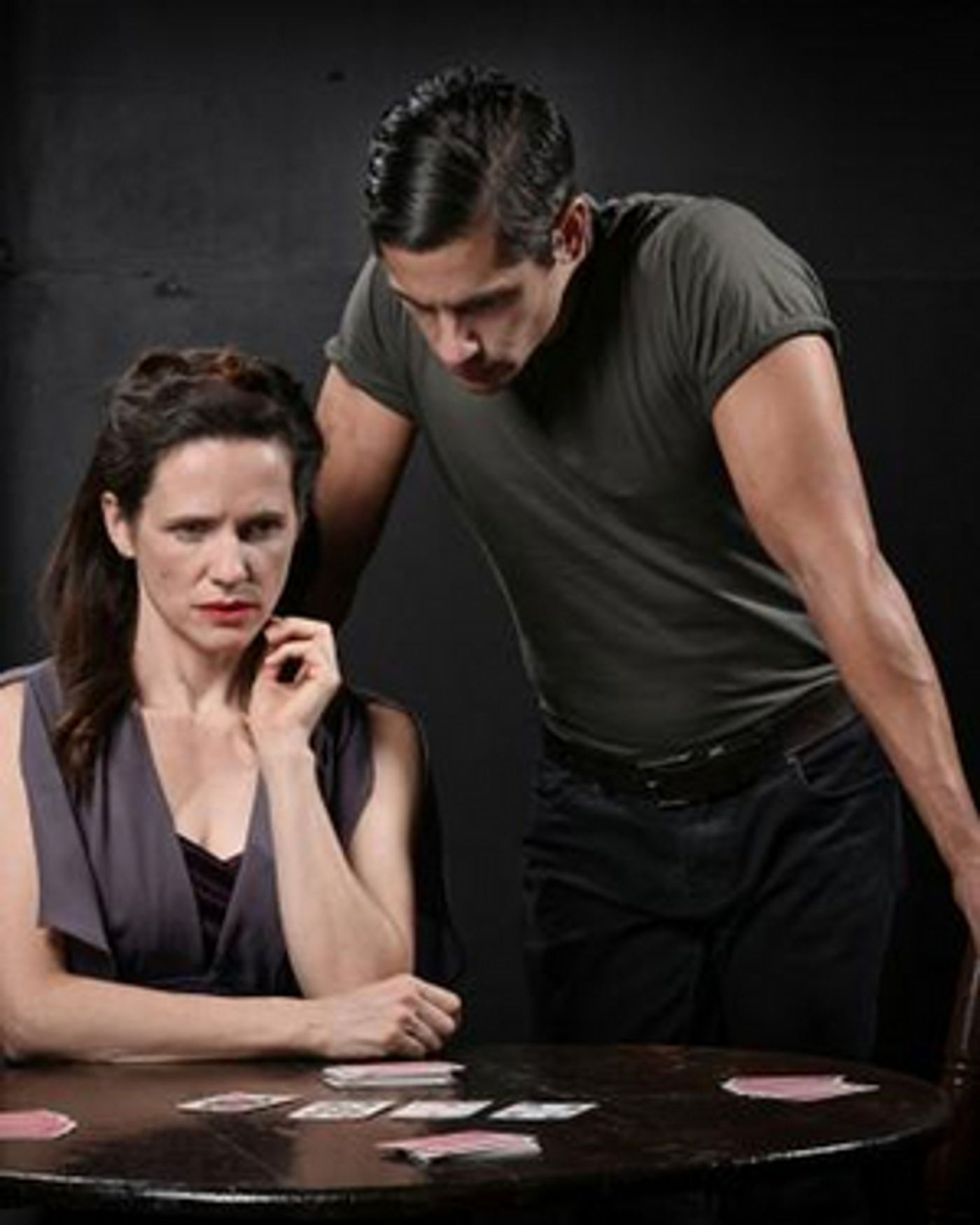Review: A STREETCAR NAMED DESIRE at Bakehouse Theatre
The final performance at a much loved venue.
 Reviewed by Barry Lenny, Thursday 28th April 2022.
Reviewed by Barry Lenny, Thursday 28th April 2022.
It is appropriate that The Bakehouse Theatre Company, itself, is to be the last group to present a production in The Bakehouse Theatre before the doors are closed forever, with the new owners, a pentecostal church, refusing to renew the lease. The company has chosen that great Tennessee Williams classic, A Streetcar Named Desire, in order to go out on a high note.
The production is superbly directed by Michael Baldwin who, equally appropriately, has cast the two people who have run the Bakehouse for over two decades, Pamela Munt and Peter Green, as the doctor and his nurse who appear in the final scene. It seems only right that they appear together on their own stage for this final time.
Blanche DuBois, the delusional, faded Southern belle who has "always depended on the kindness of strangers", has had to leave Laurel, Mississippi, where she had worked as a high school English teacher. She arrives, unexpectedly early, at the downmarket, downstairs, rented New Orleans flat of her younger sister, Stella, and her husband Stanley Kowalski, in the inappropriately named street, Elysian Fields, in the French Quarter. Blanche states that, "They told me to take a streetcar named Desire, and then transfer to one called Cemeteries and ride six blocks and get off at--Elysian Fields!" What she sees, though, comes as a nasty surprise. Eunice Hubbell, the neighbour from the upstairs flat, and owner of the house, assures her that this run-down building is the correct address, and that Stanley and Stella, who live in the tiny, two-room flat, are at the nearby bowling alley. Her arrival is a complete surprise to Stanley, too, as Stella had been keeping Blanche's visit a secret.
Pamela Munt's daughter, Melanie Munt, who trained at WAAPA (the West Australian Academy of Performing Arts), takes on the enormous and complex role of Blanche. Her performance is a tour de force. She takes us with her on Blanche's descent from escapist lies, to delusion, to madness, in a sensational performance.
Justina Ward, another graduate of WAAPA, plays Blanche's younger sister, Stella. She gives a beautiful sensitivity to her character, a kindly, caring young woman, concerned for her big sister. There is a wide range to her performance as she shows the numerous sides of Stella, from abused wife, to expectant mother, to the sexual bond between her and Stanley that is what holds them together.
Paul Westbrook, who trained professionally in England, plays Stanley. He gives an extremely powerful performance as the misogynistic, violent, manipulative, overbearing thug. Westbrook invests his character with intense physicality, authentic expressions of anger, and believability in the sexually charged relationship with Stella. It is very sad that, 75 years later, such Neanderthals as Stanley still exist and are still committing domestic violence, mental and physical.
Harold 'Mitch' Mitchell, an old army buddy, bowling team member, and poker-playing friend of Stanley's, who falls for Blanche, is played by Marc Clement. He is very much one of the gang, but has a softer side, and Clement explores these facets of Mitch's persona in a well-balanced performance.
Susan Cilento plays Eustice Hubbell who, like Stella, is in an abusive marriage. Cilento gives her character a warmth and resilience, convincing as the person to whom Stella can turn in times of marital adversity.
Nathan Brown appears as Steve Hubbell, Eunice's husband, and another of Stanley's poker group and bowling team. His performance gives us another who, like Stanley, sees himself as the master in his home, and women as subservient. His cold detachment in the final line of the play is nicely delivered.
Matthew Adams appears as A Young Collector, a teenager collecting the money owed for the local newspaper, who calls when only Blanche is at home, and he plays it as suitably terrified when she turns on her charms.
I wondered how they would manage to design a set, based on a two-storey building, in such an intimate venue. The answer to that is, very cleverly. You'll need a ticket to find out how the combined efforts of the production team accomplished it. Aside from that, Michael Baldwin arranged for the entrance to remain open to allow for the constant comings and goings of the characters, and to enable the offstage pianist to play in the foyer, intended to be music coming from the nearby bar, The Four Deuces, and still be heard. The live music is provided by pianists, Walter Barbieri, in the first week, and Brendan Fitzgerald, in the final week. The very effective lighting and sound is, once more, by the indefatigable, Stephen Dean, who has lit countless shows in this theatre, as well as for many others.
If the production is not already sold out, and it definitely should be, hurry to book tickets.
Photography, Michael Errey.
Reader Reviews
Videos

